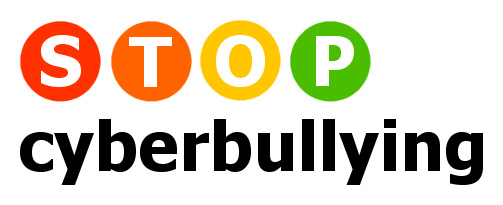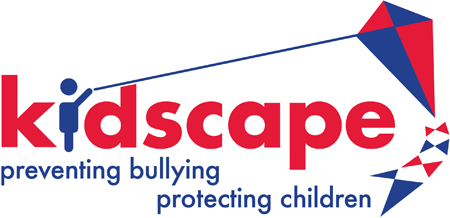It's never easy to know how to keep our children safe when they aren't with us, and sometimes even when are, if we don't know what's happening on their devices. Who are they talking to, what are they doing, are they okay? If you need help to find some answers, scroll through this page for help or click on a topic on the right hand side to go straight to the topics or help section.
Here at St Peter's we do our best to keep our parents informed with the latest advise and guidance on how to keep their children safe when using technology and the internet.
IF YOU'RE WORRIED SOMEONE YOU KNOW IS BEING RADICALISED VISIT LTAI FOR HELP AND ADVICE
If you need to report online material promoting terrorism and extremism please follow this link: https://www.gov.uk/report-terrorism
To Help Report/Prevent Online Sexual Abuse Click Here
Every day girls are contacted online by adults who to try to manipulate, groom and exploit them. The Gurls Out Loud web page has some facts and advice.
See HERE for more information.
Pease be vigilant and let a member of the safeguarding team know if you are concerned about the games your son/daughter plays online and how it affects them.
Influencers are people who use their internet clout or celebrity status to promote brands, products, or services online, thereby ‘influencing’ their audience to change their behaviour in some way i.e. by spending money.
Whatever you are interested in, there will probably be an influencer posting about it. Influencers create and post a lot of different types of content, sometimes on more than one social media platform. Some influencers post vlogs to give us insight into their lives, reviews of products that they have been sent or have bought, ‘outfit of the day’ videos and much more!
Many people like following influencers that they identify with or who show similar experiences to them. Some influencers use their online platform to raise awareness around social issues and promote acceptance of different groups of people.
For More Information Click Here
Cyber security is something that adapts as time goes on, changing as technology gets more sophisticated and attackers get more savvy. The fundamentals remain the same though and a basic understanding is sometimes all you need to keep yourself protected. For Cyber Security month, SWGfL have compiled the top 5 five things to remember when it comes to keeping your information safe online. For more information please use this link.
Young people are being contacted in their own homes on online platforms and apps and asked for sexual pictures and videos, while their parents and carers believe they are safe.
More and more sexual abuse material is created by offenders who coerce and groom children into sexual activities, often in children’s own bedrooms and bathrooms. They then record this via webcams or livestreaming services. It’s known as ‘self-generated**’ child sexual abuse imagery.
This is happening now, and it can happen to anyone. But you can do something about it; you can help prevent it happening to your child. For more information please follow this link https://talk.iwf.org.uk and download this guide.
The Game Players Code is a six-point guide to help video game players actively take steps that’ll protect them from fraud. Players can SHIELD themselves from many of the common risks identified in the research by following these simple pieces of advice:
Parental controls are tools and software that are built into most modern devices that allow you to control what your children can gain access to on a device or the internet. This can range from what websites they are allowed to visit, what apps they can install and what settings on a deviec that they can chane. The purpose of parental controls is to keep children safe when using technology and the internet. For more information on what parental controls are and how you can set them up please Click Here
Parenting in the Digital Age doesn’t need to be overwhelming. In fact, it isn’t so different to parenting in the offline world. Especially if you use the WWW approach and make sure you know:
ThinkUKnow for Parents and Carers
An excellent website for parents and pupils alike. Great advice on many issues such as Social Networking, Chat, Mobiles and Cyberbullying. Very good section on reporting or what to do if you or your child is worried.
Know It All for Parents (Childnet)
Another excellent site with really good advice for Parents, in many different languages. It has a video presentation which you view online or order, a glossary of internet jargon and much more.
For more information on parenting in the digital age please Click Here
Online Sexual Abuse
Please see the documents below for more information about Online Sexual Abuse.
| Online Sexual Bullying | Sexual Abuse Online |
UK Safer Internet Centre has tips, advice, guides and other resources to help keep children safe online, including parental controls offered by home internet providers and safety tools on social networks and other online services.
For more information about the UK Safer Internet Centre please Click Here
Want to know the steps that you can take as a parent to keep your children safe in their digital world depending on their age?
For More Information Please Click Here
The National Cyber Security Centre offers advice on how to avoid computer threats like phishing emails or data theft.
For More Information Please Click Here
This website is full of resources for students but also parents for keeping your children safe online.
For More Information Please Click Here
Messages of hate can take may forms. Extremist groups use them to recruit young people. Parents can find answers to common questions and resources to help protect their children following this link.
Essential support for young people under the age of 25 regarding a variety of issues.
For More information Please Click Here
The internet is full of exciting things. Apps and technology are changing quickly, and it can be hard for parents to keep up. But it’s important they do. Because for kids, online life is real life. And just like real life, it comes with risks. That’s why O2 has teamed up with the UK’s leading children’s charity, the NSPCC, to develop an award-winning partnership to help parents understand their kids’ online world and how to keep them safe within it. The resources are designed to help parents have more regular conversations with their children about online safety – enabling more families to enjoy the digital world with confidence.
For More Information Click Here
You’re likely to be working with a child or young person who has asked for some form of internet-enabled tech for Christmas. Be it a new smartphone, tablet or the latest games console. While their device will provide them with hours of entertainment and the opportunity to connect with family and friends they can't meet with face-to-face, it can also present new risks. Here are 4 steps you can take to help them stay safer online over the winter break and beyond: Click Here








